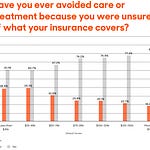
Click to visit the FTC’s Covid complaint dashboard.
U.S. consumers have now filed 203,000 Covid-19-releated complaints with the Federal Trade Commission, and counting. Vctims say scam artists have stolen $144 million, or about $300 per incident, the FTC’s dashboard says.
“While people are scared about their health and finances, con artists are having a field day,” said Lucy Baker, U.S. PIRG Education Fund’s Consumer Program Associate.
Typical scams include sale of false treatments and cures, fake help with government assistance programs, price gouging, and fake text messages or emails about contact tracing.
PIRG, a consumer advocacy group, has been tracking Covid scams since the beginning of the year, chronicling steps taken by the FTC and 14 other federal agencies in response to coronavirus scams. They include: the FTC and the U.S. Food and Drug Administration (FDA) sending more than 420 warning letters, the Securities and Exchange Commission (SEC) suspending stock trading for 37 companies, and the Cybersecurity and Infrastructure Security Agency (CISA) shutting down thousands of malicious web domains and email addresses, PIRG says. (Click here for PIRG’s list of government actions against alleged Covid criminals)
"The government should wield every tool at its disposal against scammers,” Baker says. “That includes health care benefits fraud, fake disease treatments and the sale of nonexistent medical supplies. “
Meanwhile, advocacy group Public Citizen released a report earlier this month accusing Amazon.com of turning a blind eye to price gouging.
“This report details 15 essential products that have been sold by Amazon during that COVID-19 pandemic with markups over the recent price on Amazon.com or other national retailers ranging from 76% to more than 1,000%, and 10 products sold on Amazon by third-party sellers during the same period with markups ranging from 225% to 941%,” the report found. “Notably, some state price gouging laws prohibit price increases of as little as 10%.”
Earlier this year, I recorded a podcast with PIRG’s Grace Brombach, who had just authored wrote a report on Covid scams(PDF). Already, nearly 100,000 scam-ready domains have been registered since the Covid-19 pandemic began.
Covid is the Super Bowl for digital criminals, the golden age of computer fraud. Why? Because a con artist’s best friend is urgency.
“We are dealing with so much fear and confusion right now,” Brombach said then. “People are being put in a very difficult situation where they don’t really know what to believe.”
Of particular worry: Homebound computer users are being told to download all kinds of new software and fill out forms full of personal information, doing things that ordinarily they would never do. For example: Employees are working from home, Zooming everywhere. Think about how believable an email might be that appeared to come from an HR department, promising new video conference guidelines or requiring new software installation.
Making matters worse, as cybersecurity expert Harri Hursti has told me, a lot of corporate security software is designed to look for unusual patterns in network traffic — like massive downloads or a surprising number of remote logins. Everything is unusual now.
“We all need to be on our guard,” Baker warned. “Before you click, pause first. Do your research and ask yourself if that website, email, text, direct message or call is legit. Be wary of handing over your money or personal information.”
How to report coronavirus-related scams
The DOJ’s National Center for Disaster Fraud (NCDF) Hotline can be reached at 1-866-720-5721 and through an online complaint form, which also includes a list of other agencies where complaints can be filed.
The FTC’s complaint form is available here.










Share this post